Women of SPC
Highlighting and celebrating some of the remarkable women in the SPC community during Women's History Month.
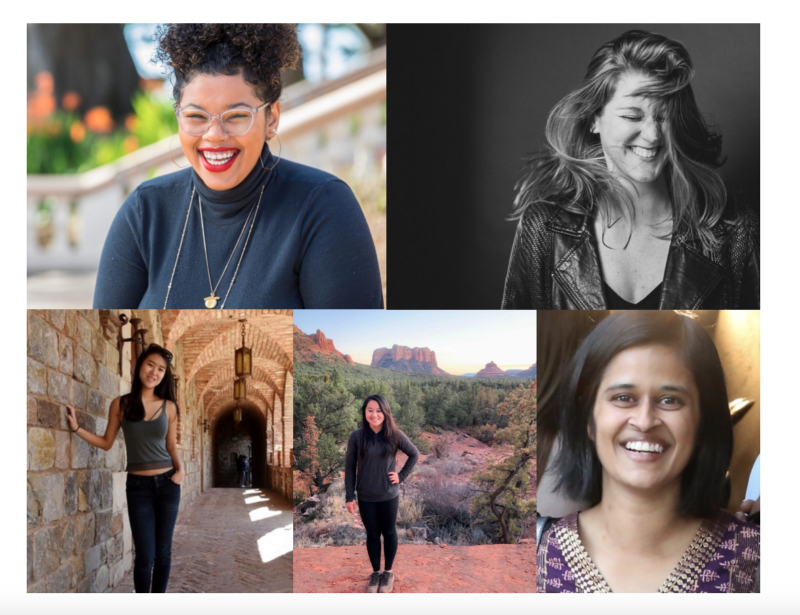
Submitted by Ashlee Flagg
As Women’s History Month comes to a close, we would like to take a moment to reflect on the women who have influenced South Park Commons, and how the women in our community are shaping the world.
For background, SPC was started by Ruchi Sanghvi, the first female engineer at Facebook. After co-founding a startup, and then leading operations at Dropbox, she decided to spend some time exploring what to do next. In search of camaraderie, she convened a group of peers known informally as “Ruchi’s Kitchen” (named after the place where they’d meet). What began as a discussion group for curious, out-of-work technologists has today evolved into an international community of learners, explorers, and builders.
Earlier this month, we asked some of the women at SPC to share what they’re working on, and who inspires them most. We are excited to share their stories here.
Madhulika Chambers
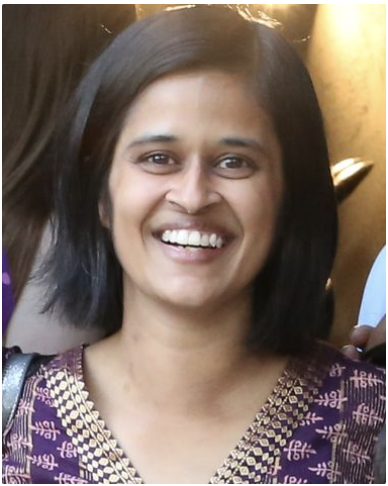
Where did you grow up? Where do you live now?
I grew up in India, and live in San Francisco. I moved to the United States to go to college at MIT, and still think of Cambridge, MA as my home.
How did you find your way here?
I loved math growing up, and was always interested in algorithms and problem solving. I came to MIT to study computer science and math. Somewhere along the way, I got seduced into science and discovery, and — after some engaging biology classes that covered everything from hormonal contraception to AIDS, stem cell research, and cancer — I decided to double major in computer science and in biology. I loved my time in college, met my husband there, and made lifelong friends. After graduating, I moved to San Francisco to do my PhD at UCSF in tuberculosis research and made some more lifelong friends here. I then moved back to Cambridge to do research in Computational Biology, as I felt my pendulum swinging back towards computation and engineering. Finally, I made the cross country move back to San Francisco when I decided to stay at home raising my children full time. My years being with my children full time were wonderful, and I spent time singing, painting, learning to play the piano, woodworking, and being outside in all sorts of ways — backpacking when they were old enough, kayaking in Tomales Bay and more. Being a parent is extremely challenging, and I was happy to have so much time dedicated to grow into it, and to become who I became. I have three children now ages 14, 11, and 8. Last year I joined SPC, and I have now gone back to work full time in software engineering at a small start up: Station A, which is building a clean energy marketplace to help transition the world to clean energy.
How do you feel about the representation of womxn in Silicon Valley at this very moment?
I am an eternal optimist and always looking in front of me, so I would have to say I feel optimistic about womxn’s roles in Silicon Valley and in general around the world. When I think about how male-directed the world is (from movies to politics, from governance to widely held values), I grieve for what could have been if we lived in a womxn-directed or at least balanced world. When I watch a movie like Ghostbusters with Leslie Jones and Melissa McCarthy or read any one of the countless outstanding books written by modern womxn (Home Fire by Kamila Shamsie, Chlorine Sky by Mahogany Browne, the play Sovereignty by Mary Kathryn Nagle, Rookie on Love an anthology of 45 young voices including Bassey Ikpi, and Ministry of Utmost Happiness by Arundhati Roy) — I think that our consciousness around womxn led spaces, and what they look like, leaps forward a hundred years. Womxn in Silicon Valley have optimism and know their incomparable worth in leading the change we know must happen if we are to envision a world where our currency is based on how much we help the other person. I am also lucky that I work with outstanding co-workers who are genuinely interested in encouraging all of us to fully co-create the space around us, and this greatly affects my optimism.
Kennedy McDaniel
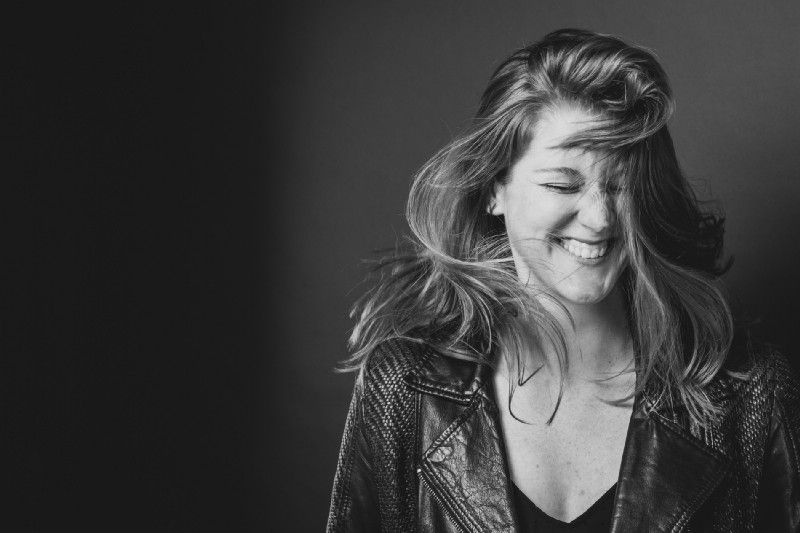
Where did you grow up? Where do you live now?
I was born and raised in the Florida Keys. It’s interesting to grow up in a place that so many people see as their paradise escape. I moved to San Francisco 4 years ago, and I am a serious lover of this city. However, for the last 8 months, my husband and I have been living nomadically across the U.S. and are getting ready to wind down our nomadic stint — we just purchased a property in Joshua Tree! We plan to build a home there and live there full time for a couple of years before moving back to San Francisco full-time and letting it be our desert retreat.
How do you feel about the representation of womxn in Silicon Valley at this very moment?
I’m feeling pragmatically optimistic, largely because I am lucky enough to know a lot of people who are actively working on this. Among the founders I know, balanced recruitment is a priority from the beginning, and more thoughtful approaches to company culture from an early stage are becoming more common. Part of my optimism is also because of my own active work in the space! I’ve been working on a project called the Glassfloor with Merna Makar, where we promote mutual mentorship. The Glassfloor is different from a lot of other projects in the space for 3 critical reasons. 1) We believe inclusivity is essential for change — womxn and mxn — all are welcome in the Glassfloor. 2) We pair accountability with peer mentorship and support, rather than treating these as two separate functions. 3) We are agnostic to business model — from VC-backable startup to community small business, we recognize that the early stages of entrepreneurship benefit from a maximum amount of cross-pollination.
What is your dream project (if money were no object)?
I’m so lucky — I’ve been working on nothing but my dream projects for the last 2 years. I recently joined Canid, where we manage vaccine programs (from financing, to technology, to inventory, etc.) so independent pediatricians can instead focus on the children. The ongoing COVID-19 vaccine rollout only highlights the importance and challenges of this work. Before joining Canid I co-founded Banting to connect American patients to Canadian pharmacies to save 70% on insulin.
Kathy Qian
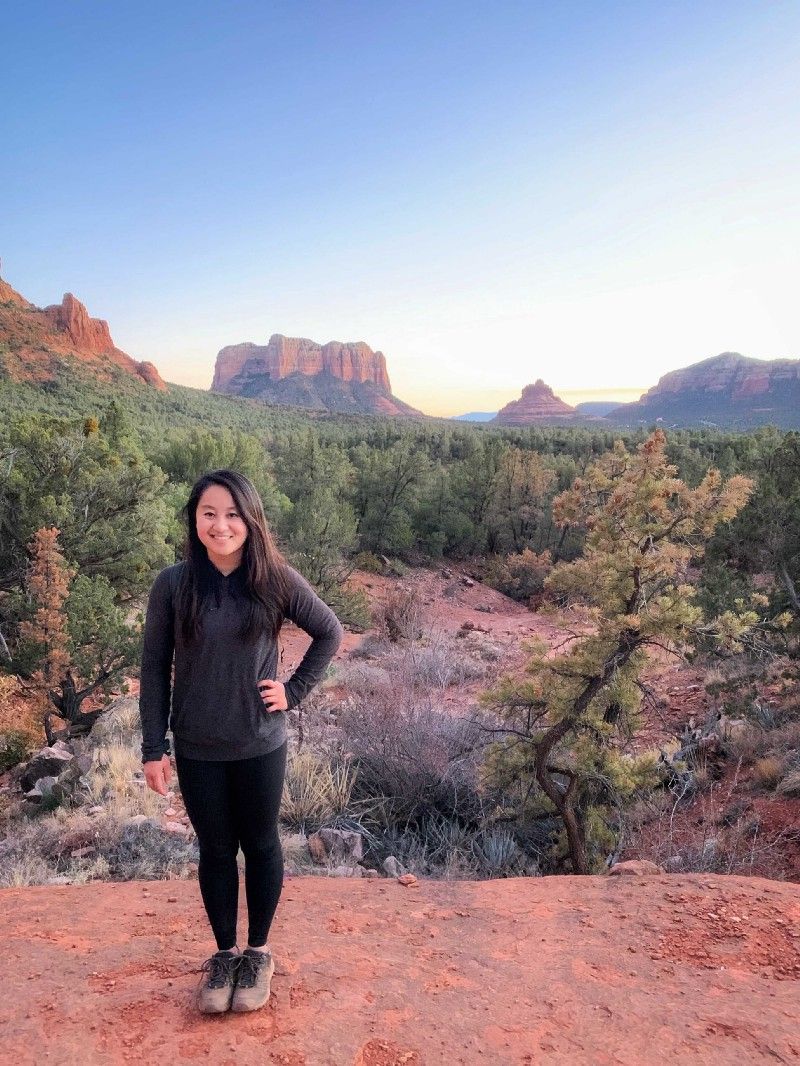
Where are you from originally? Where do you live now?
I’m made in China but mostly grew up in Northeast Ohio. Currently I live in SF.
How did you find your way here?
I learned to code as a kid, maybe when I was 10 or 11. I was a latchkey kid that spent a lot of time alone after school, and I wasn’t allowed to leave the house, so I spent a lot of time on the internet. I first learned HTML/CSS/JS because I was running a pyramid scheme on Neopets and having a website made it seem more legit. From there, I got involved in a bunch of online communities where I debated the merits of ASP vs. PHP with a bunch of strangers and started selling plugins for forum software. My parents eventually found out about what I was doing, and they were a little concerned about the safety of their preteen daughter, so I adopted an online alter ego. This was before real names were ubiquitous on the internet. I pretended to be a 26-year-old dude named John.
Who do you regard as a mentor? Who inspires you?
In general, I’m really inspired by people who took non-obvious paths in life, like those who managed to combine a lot of seemingly disparate interests in creative ways to create a really unique career. I also pay a lot of attention to people who can be role models for my personal life as well, because I think building a rich personal life is just as if not more difficult than creating a successful startup or other career metrics we think of as traditional success.
How do you feel about the representation of womxn in Silicon Valley at this very moment?
I tend to be pretty optimistic! I have to be honest in saying that being a woman is not a particularly huge part of my personal identity, and in general I tend to brush off a lot of sexism because I’m personally not that sensitive to it. But in recent years I’ve been learning how to speak up because I think it’s important to advocate on behalf of other women.
What is your dream project (if money were no object)?
Code for Democracy is pretty much this project. We build workflow automation tools that make it easy to investigate relationships between campaign contributions, political narratives, and legislative outcomes in the US. I care deeply about building technology that can help fight corruption and build a more transparent democracy. And because we primarily serve journalists, researchers, and open government advocates, it’s definitely not the type of product you build for the money!
Yiren Lu
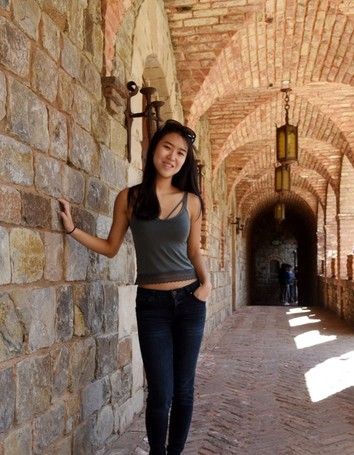
Where did you grow up? Where do you live now?
I grew up north of San Francisco in Sonoma. I live in NYC now.
How did you find your way here?
My dad was a software engineer but I wasn’t particularly interested in programming growing up. I graduated college in 2013, and that’s right when computer science and tech was taking off — I guess I saw the rocket ship and wanted to be on it.
Who do you regard as a mentor? Who inspires you?
I’ve had some incredible technical mentors in my previous jobs, Akshay Shah and Sam Russell at Uber and my editor Dean Robinson at the New York Times. I’m inspired by so many of my friends; recently I’ve also been reading a bit about medicine and biotech, and some public figures I’m inspired by are Jennifer Doudna, the inventor of CRISPR, and William Henry Welch, one of the founding physicians of Johns Hopkins medical school, who brought the American medical system into the modern age.
How do you feel about the representation of womxn in Silicon Valley at this very moment?
Optimistic! Maybe it’s just my circles but so many girlfriends of mine are starting companies these days. (Off the top of my head — Amy Yin of OfficeTogether, Vera Kutsenko of Neverland, Diana Siu). They’re kicking ass, taking names, raising money, and building incredible products.
Reyna Brown
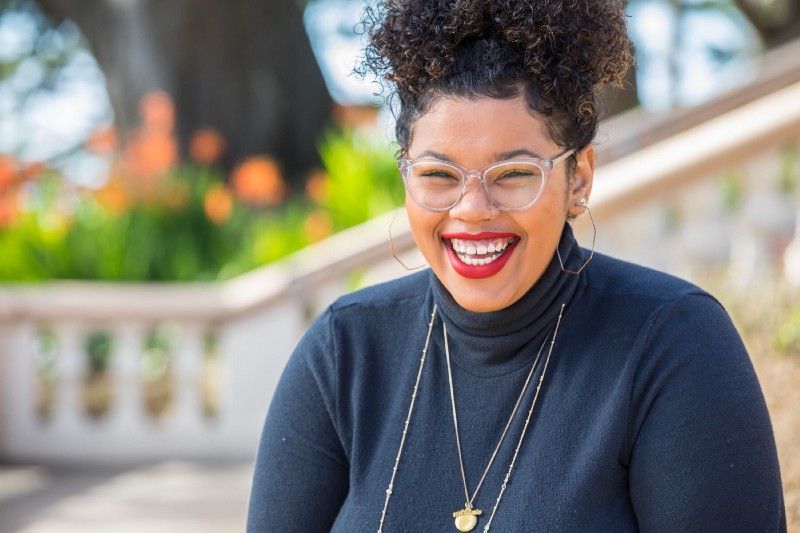
Where did you grow up? Where do you live now?
I grew up in Oxnard, California. It’s a small flat town on the coast of Southern California right between Los Angeles and Santa Barbara. I grew up around rich agriculture and a wide variety of diverse individuals to call my peers and friends. Now I live in Oakland after coming to the Bay in 2015 to attend the University of San Francisco.
How did you find your way here?
I originally came to USF as a Business major. I remember being on an immersion trip to Peru facilitated and guided by members of the university, and for the first time I stood face to face with overt government abuse and oppression. At some point in this trip, I was sitting with a group of women who were survivors of severe sexual assault and told us heartbreaking, gruesome stories of their lives. Our guide and facilitator gave each of us USF students a sticky note and a pen and asked us what we would do with our major to change the lives of these women. In that moment, I realized that business would not help me dismantle systems of oppression in our society. I had to be innovative, creative, compassionate, expressive, and unapologetic to become the change I want to see in the world. After this trip, I shifted my studies to focus on the American war against the Black body and specifically the ways in which slavery has disguised itself as mass incarceration. I am devoted to using my skills to dismantle tools of historic harm.
Who do you regard as a mentor? Who inspires you?
I am inspired and moved most by my students. Varying in age from 5–45 years old, it is the humans I connect with using the arts that inspire and move me the most. My grandmother is the matriarch of our family, and she is my biggest guiding star, without her grace, love, support, and insight I would be nothing. I also find mentorship in the hearts of Black women in the arts. Specifically, Ashley Smiley and Rhodessa Jones. These two women exemplify an unapologetic authenticity about themselves that I hope to emulate and absorb every day. I am inspired by my ancestors — Audre Lorde, Malcolm X, James Baldwin, Assata Shakur, Harriet Tubman, John Lewis — and so many others who put their lives on the line so I could dare to dream without fear. I learn from them every day and seek to honor them with my life.
How do you feel about the representation of womxn in Silicon Valley at this very moment?
Though I am not well versed with the current state of womxn’s status/roles in Silicon Valley at this moment, I do know in general womxn are over worked and underpaid. I believe until we fulfill the needs of our most marginalized groups and give them power, we will continue harmful cycles of violence.
What is your dream project (if money were no object)?
I would create an arts-based community center that provides holistic healing for folks in need, and transitional housing and programs for folks coming out of incarceration. I would connect with different organizations currently operating to serve these communities and give them space to operate their programs in the building. By centering art in our transformative practices, I believe we can create sustainable relationships in the community.
I am also interested in creating a market and a production company that branches from the building as a means for transitioning folks to gain experience in the workplace before finding an employer. For example, not only would the market serve as an opportunity to end food deserts by providing access to affordable nutritious foods, but it will also connect current community members to returning citizens and help them in their socialization process. In the same way that transitioning citizens would gain work experience at the market, they would also gain experience working within a production company — writing scripts, directing, filming, and acting. This will also serve as an opportunity for participants to share their stories and begin to shift the narrative our society holds against those who “commit crime”.
I have a ton of ideas. Money is a huge constraint for me because I fully rely on my full-time job to support myself and my family. If anyone is aware of any funding opportunities to embark on these endeavors don’t hesitate to reach out!
South Park Commons welcomes womxn in technology (and other fields) who are searching for impact. To learn more about our members, the community and our application process please visit www.southparkcommons.com.
